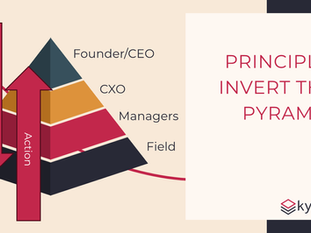
Three Principles of Building Effective Teams
Oct 8, 2024
2 min read
0
0
0
Teams do not spontaneously innovate. Apple famously designs their offices to encourage employees to mingle, with the hope that people will interact and spark new ideas. The reality of most individuals, unfortunately, is that they just want to get their work done, and these “sparked” interactions rarely happen. Hope is a poor strategy to build on.
A better strategy is to design for team effectiveness, whether it’s being productive, efficient, agile, innovative, or whatever metric a company decides is important. Instead of hope, build a team on the following three principles.
Strong norms: this is the foundation of any team (or company, really), and it just means setting clear and enforced expectations of behaviors. The following norms tend to come up often in strongly performing teams: transparency, being clear and explaining why things are the way they are; accountability, owning actions: who will do what by when; integrity, if commitments are missed, how will that be resolved; respect, separating facts from judgements; psychological safety, the freedom to make, report, and learn from mistakes
Diverse inputs: building a team for “culture fit” will not generate new ways of thinking, but inviting and encouraging diversity will. How to encourage diversity? Ask for inputs before a meeting starts to reduce groupthink; ask for a devil’s advocate in every meeting to upset echo-chambers; allow everyone to contribute, even if non-verbally; perform pre-mortems; ask for “wrong” ideas/ones that won’t work; only permit the leader to speak last
Deliberate, Design, and Deliver: team actions should be categorized into those categories and performed in that order. Actions categorized in Deliberate, the crux of why teams exist, attempt to solve non-trivial problems: invent a new product, overcome a delivery issue, add critical features, any problem that requires original thought. Actions in Design come after Deliberate, and they’re meant to plan how to achieve the goals outlined in Deliberate. Finally in Deliver are the individual actions that team members need to deliver
A team missing one of these three will not perform well. Poor norms lead to discomfort and disengagement, mono-inputs lead to groupthink and echo chambers, and unplanned actions lead to waste and chaos.


















